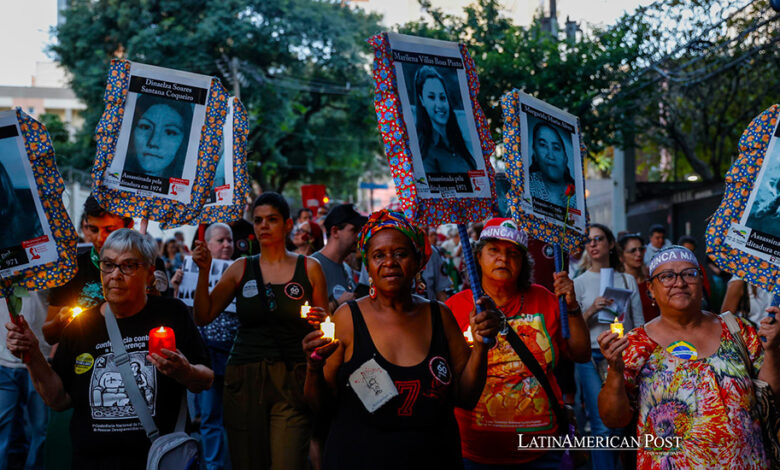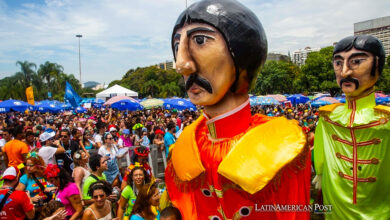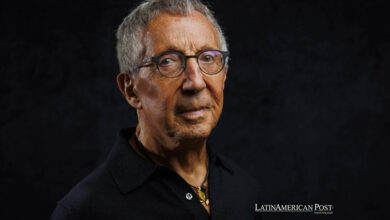Echoes of 1964: Brazil’s Democratic Resilience Amid Crisis

Brazil commemorates the 1964 coup, highlighting the military’s refusal to disrupt democracy in 2023, juxtaposing past dictatorships with today’s challenges, and reflecting on the broader Latin American struggle for democratic stability and historical reconciliation.
Brazil recently marked the 60th anniversary of the 1964 coup, a pivotal event that led to a 21-year dictatorship. The coup’s shadow of historical significance is cast amid contemporary political dynamics. The commemoration coincided with investigations into a supposed plot to prevent Luiz Inácio Lula da Silva’s inauguration in January 2023, unveiling a complex narrative of democracy’s resilience against the specter of authoritarianism.
The 1964 coup, initiated between March 31 and April 1, overthrew President João Goulart and installed a military regime that lasted over two decades. This period, fueled by Cold War tensions, witnessed economic elites and media colluding, with U.S. support, to upend Brazil’s democratic trajectory. Declassified documents have since confirmed U.S. involvement, casting a long shadow over North-South relations in the hemisphere.
Bolsonaro’s Alleged Coup Attempt
Fast-forward to 2023, and Brazil faced echoes of its authoritarian past when former President Jair Bolsonaro, emblematic of the far-right’s nostalgic yearning for the military dictatorship, allegedly sought military support to overturn Lula’s electoral victory. However, the contemporary military leadership, contrasting with their predecessors, declined to partake in such endeavors, signaling a nuanced shift in the political landscape.
Historian Vania Cury, who has extensively studied the 1964 movement, suggests that the military’s refusal was less about democratic conviction and more about a pragmatic realization of potential defeat. This perspective discusses the intricate interplay between historical memory, democratic principles, and political pragmatism in Brazil’s journey from dictatorship to democracy.
Bolsonaro’s tenure from 2019 to 2022 saw an unsettling revival of rhetoric reminiscent of 1964, with intensified attacks on social reforms, indigenous rights, and minority groups. According to Cury, this reflected the ideological continuities with the past and underscored the lingering repressive structures within Brazil’s political apparatus.
The transition from military rule to democracy in Brazil, completed in 1985, was marked by conciliatory politics, fostering a negotiated return to civilian governance. Unlike other Latin American nations that aggressively pursued transitional justice post-dictatorship, Brazil opted for a broad amnesty in 1979, encompassing both the opposition and the regime’s perpetrators.
While facilitating a peaceful transition, this conciliatory approach arguably cemented existing power structures, enabling a socioeconomic status quo predating the dictatorship. Cury’s analysis posits that Brazil’s path to democracy, devoid of significant upheaval, helped perpetuate dominant power dynamics, sidelining comprehensive efforts toward justice and memory.
Brazil in Regional Context: Lessons from Latin America
Brazil’s experience reflects a broader Latin American context where nations like Argentina, Chile, and Uruguay have grappled with the legacies of their respective dictatorships. Each country has navigated its path toward acknowledging and addressing past atrocities with varying degrees of success and commitment to justice and historical reckoning.
In Argentina, the post-dictatorship era saw significant strides in holding military and civilian collaborators accountable, contrasting with Brazil’s more restrained approach. Chile and Uruguay, too, have wrestled with their pasts, oscillating between periods of remembrance and denial as they sought to reconcile the imperatives of justice with the difficulties of political stability.
The juxtaposition of Brazil’s historical and current political challenges underscores a recurring theme in Latin American politics: the tension between democratic aspirations and authoritarian impulses. The region’s history is replete with cycles of democratic breakthroughs and setbacks, often influenced by external actors and internal power dynamics.
Also read: Brazil’s Bolsonaro Becomes a Major Figure of Division as Elections Loom
Brazil’s remembrance of the 1964 coup amidst recent political turmoil is a poignant reminder of the enduring struggle for democracy and historical justice in Latin America. The military’s stance in 2023, against the backdrop of Bolsonaro’s alleged coup attempt, reflects a complex interplay of past and present, highlighting both progress and ongoing challenges in the quest for a democratic and just society.





